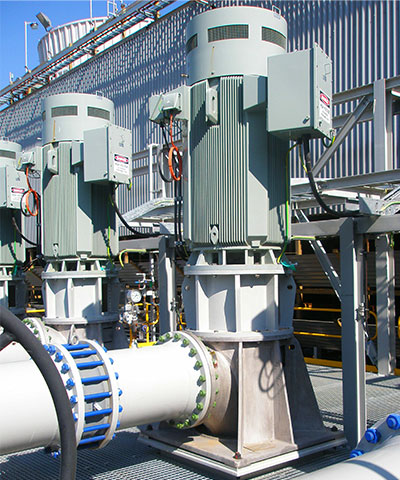 Pump engineering is a discipline within the field of mechanical engineering that focuses on the design, development, and maintenance of various types of pumps. Pumps play an indispensable role in a wide range of industries, including water supply, wastewater treatment, oil and gas, power generation, and chemical processing. Essentially, pump engineering involves the application of fluid mechanics principles to create efficient and reliable pumping systems to transfer fluids from one location to another.
Pump engineering is a discipline within the field of mechanical engineering that focuses on the design, development, and maintenance of various types of pumps. Pumps play an indispensable role in a wide range of industries, including water supply, wastewater treatment, oil and gas, power generation, and chemical processing. Essentially, pump engineering involves the application of fluid mechanics principles to create efficient and reliable pumping systems to transfer fluids from one location to another.
Types of Pumps
There are numerous types of pumps designed to meet different requirements and applications. Centrifugal pumps, which utilise centrifugal force to increase a fluid’s velocity, are among the most common. Positive displacement pumps differ in that they trap a certain amount of fluid and then force it to pass through a discharge pipe. Other types include reciprocating pumps, diaphragm pumps, and axial flow pumps. Each type has its unique characteristics and is selected for use based on factors such as flow rate, pressure requirements, and the properties of the fluid being pumped.
Key Components and Working Principles
Understanding the components and working principles of pumps is essential for effective pump engineering. Key components include impellers, casings, shafts, bearings, and seals. In centrifugal pumps, the impeller plays a central role by imparting kinetic energy to a fluid. As the impeller rotates, fluid is drawn into the pump and accelerated outward by centrifugal force which converts the kinetic energy into pressure. Positive displacement pumps, meanwhile, rely on the periodic displacement of a certain volume of fluid to achieve pumping action.
Applications and Industries
Pump engineering has applications across various industries and sectors. In the water and wastewater sector, pumps are used for water supply, sewage treatment, and drainage systems. In the oil and gas industry, pumps are employed for crude oil transportation, refining processes, and offshore drilling operations. Power generation plants utilise pumps for cooling systems, boiler feedwater, and condensate extraction. Moreover, pumps are integral to chemical processing, food and beverage production, pharmaceuticals, and HVAC (heating, ventilation, and air conditioning) systems.
Challenges and Solutions
Despite their importance, pumps face several challenges, including wear and tear, cavitation, corrosion, and efficiency loss. Pump engineers are tasked with overcoming these challenges through innovative design, material selection, and maintenance strategies. Advanced computational fluid dynamics (CFD) simulations and predictive maintenance techniques are being increasingly employed to optimise pump performance and reliability. In addition, the development of more efficient pump designs and the adoption of sustainable practices are helping mitigate environmental impact and reduce energy consumption.
Future Trends and Innovations
Looking ahead, the field of pump engineering is poised for continued innovation and advancement. Emerging technologies such as additive manufacturing (3D printing) offer new possibilities for rapid prototyping and customisation of pump components. The integration of smart sensors and Internet of Things (IoT) connectivity enables real-time monitoring of pump performance and predictive maintenance. Furthermore, there is growing emphasis on the development of energy-efficient pumps and the exploration of alternative energy sources to power pumping systems, thereby contributing to sustainability goals.
So, pump engineering encompasses a diverse array of disciplines and technologies aimed at designing efficient, reliable, and sustainable pumping systems. From centrifugal pumps to positive displacement pumps, the field offers a wide range of solutions to meet the diverse needs of industries worldwide.Â






